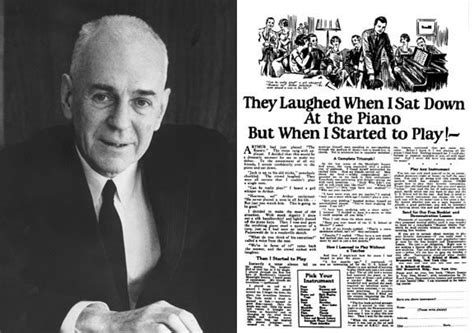A Quote by Michael Mauboussin
A thoughtful investment process contemplates both probability and payoffs and carefully considers where the consensus - as revealed by a price - may be wrong. Even though there are also some important features that make investing different than, say, a casino or the track, the basic idea is the same: you want the positive expected value on your side
Related Quotes
The risk of an investment is described by both the probability and the potential amount of loss. The risk of an investment-the probability of an adverse outcome-is partly inherent in its very nature. A dollar spent on biotechnology research is a riskier investment than a dollar used to purchase utility equipment. The former has both a greater probability of loss and a greater percentage of the investment at stake.
Value in relation to price, not price alone, must determine your investment decisions. If you look to Mr Market as a creator of investment opportunities (where price departs from underlying value), you have the makings of a value investor. If you insist on looking to Mr Market for investment guidance however, you are probably best advised to hire someone else to manage your money.
One of the most important analytic tools when assessing an investment is an intellectually advantaged disparate view. This includes knowing more and perceiving the situation better than others do. It is also critical to have a keen understanding of what the market expectations for any investment truly are. Thus, the process by which a disparate perception, when correct, becomes consensus should lead to meaningful profit. Understanding market expectation is at least as important as, and often different from fundamental knowledge.
the idea of a finished human product not only appears presumptuous but even, in my opinion, lacks any strong appeal. Life is struggle and striving, development and growth - and analysis is one of the means that can help in this process. Certainly its positive accomplishments are important, but also the striving itself is of intrinsic value.
[W]e think the very term 'value investing' is redundant. What is 'investing' if it is not the act of seeking value at least sufficient to justify the amount paid? Consciously paying more for a stock than its calculated value -- in the hope that it can soon be sold for a still-higher price -- should be labeled speculation (which is neither illegal, immoral nor -- in our view -- financially fattening).
I also had to come tonight to apologize. If you need to go to Mexico to finish this process off, then I understand. I was wrong to criticize you for it or even imply that I had some kind of say in it. One of the greatest things about you is that in the end, you always make smart decisions. Can’t always say the same for myself. Whatever you need to do, I’ll support you.
When we do an investment, we always ask, 'Can we affect the outcome? When buying a company, can we have an impact?' That's a different style of investing than a passive investor in the stock market. To me, that's how you're taking the risk out of it. You know what your capability is and how you can enhance value.
Further, the same Arguments which explode the Notion of Luck, may, on the other side, be useful in some Cases to establish a due comparison between Chance and Design: We may imagine Chance and Design to be, as it were, in Competition with each other, for the production of some sorts of Events, and may calculate what Probability there is, that those Events should be rather be owing to the one than to the other.
Economists tell us that the 'price' of an object and its 'value' have very little or nothing to do with one another. 'Value' is entirely subjective economic value, anyway while 'price' reflects whatever a buyer is willing to give up to get the object in question, and whatever the seller is willing to accept to give it up. Both are governed by the Law of Marginal Utility, which is actually a law of psychology, rather than economics. For government to attempt to dictate a 'fair price' betrays complete misunderstanding of the entire process.
I think I'm determined. And I think if you're determined, you're right. Your behavior is exactly the same when you're stubborn, except then you're wrong. And so, there's times when I'm wrong, and I'd say, "Well, you were the dark side of determined." But I think determination, you know, it's like have an idea, think about the idea, the risks involved. What does it take to get from here to there? And then once you make the choice, you just keep going.
Bitcoins are not a real investment; they are bets inside a casino. If the price goes back up, don't be fooled. In the parlance of popping investment bubbles, it's something called a 'dead-cat bounce.' People who are desperate to keep the game going rush back in, hoping to bring the price back up, but it never lasts.
It does no one any good to say their novel sucks if you don't have an idea how to make it better, how to approach it from different angles and make it work. It's obviously a subjective process, right? But the thing about subjectivity, at least in the classroom, is that you're banking on your professor's subjectivity to be both personal and professional - that he or she has some sense about the world outside the workshop.































